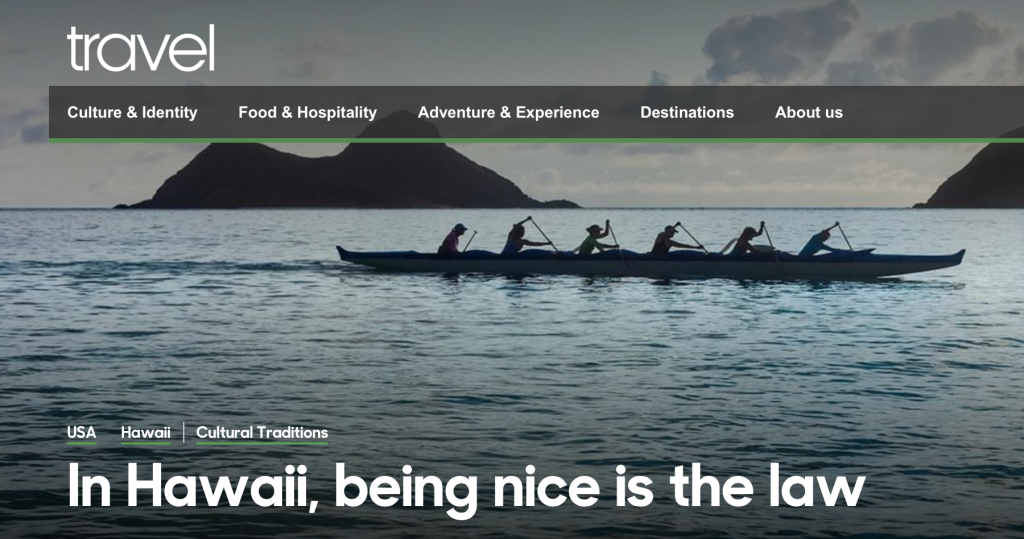‘Aloha’ is a legal concept that grew out of the necessity for Hawaiians to live in peace and work together, in harmony with the land and their spiritual beliefs.
By Brenna Kerr
Hawaii now hosts almost nine million visitors a year, and ‘Aloha’ is a word that most of those tourists will hear during their time on the islands. The word is used in place of hello and goodbye, but it means much more than that. It’s also a shorthand for the spirit of the islands – the people and the land – and what makes this place so unique.
“Alo means ‘face to face’ and Ha means ‘breath of life’,” according to Davianna Pōmaikaʻi McGregor, a Hawaii historian and founding member of the Department of Ethnic Studies at the University of Hawaii, Manoa. But McGregor also noted that there are several less literal, but equally valid, interpretations of the word.
***
It makes sense. Hawaii is the most isolated population centre in the world: the California coast is around 2,400 miles away; Japan is more than 4,000 miles. The islands are small – most (like Maui, where I live) can be driven around in a single day. Then, as now, there are no bridges connecting the islands, and even inter-island travel is a challenge. With nowhere to go, the only option, it would seem, is to get along.
“Being isolated, historically, our ancestors needed to treat each other and the land, which has limited resources, with respect,” McGregor said. “For Hawaiians, the main source of labour was human. So there was a need for collective work among extended families and a high value placed on having loving and respectful relationships.”
***
“Visitors to Hawaii often talk about how Hawaii is a beautiful place, but the most special part of their experience has been the people, and how nice people are,” said Hawaii State Representative Tulsi Gabbard. “People across the United States and around the world ultimately want peace… By truly living Aloha – having respect and love for others – we can be empowered to overcome those differences and find solutions that best serve the wellbeing of people and our planet.”
Read her entire BBC article HERE

